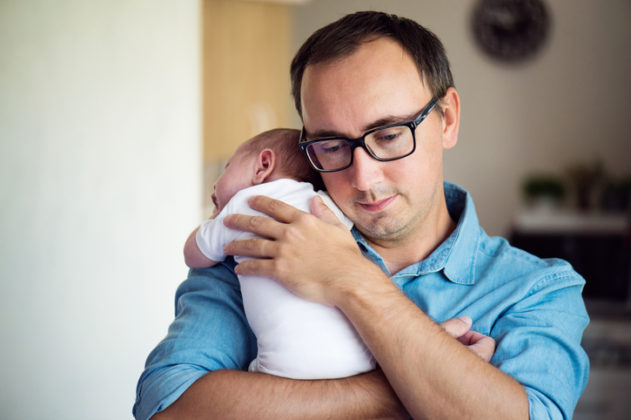The reasons to not have a child are as diverse as the reasons to have one.
Sabine Heinlein, in an April 2015 Longreads essay, explained with sharp articulation and sublime eloquence why she chose not to have children. She told the stories similar women have probably heard: Not wanting to be a mother is just a stage and everyone grows out of stages, or “You young women want it all. But you can’t have it all.” Some women, Heinlein wrote, don’t want it all.
The choice to be childfree is one usually associated with women. Pew Research Center has published a slew of studies and reports explaining, or attempting to explain, the demographics and their respective choices of childlessness. There is usually one key demographic missing, however: men. It wasn’t until 2015 that Pew published a report showing why men with college degrees take their time before becoming fathers.
Women write the majority of opinion and think pieces about “choosing to be childless,” Heinlein claims. Though there aren’t any hard and fast statistics to support the claim, a quick Google search shows various outlets and headlines — from The Huffington Post to The Atlantic, from “Childless by choice” to “The real reasons more women are remaining childless” — most written by women or for women.
There are other, more negative, opinions about women going childfree, too, as women are more likely to be penalized and stigmatized in society for not wanting children. Gavin McInnes, writing for The Federalist, argued, among other things, “The hour glass of your fertility turns upside down at 30, and five years later it’s all but drained.” McInnes — after he lists, and subsequently criticizes, the 10 most common reasons people don’t have children — ultimately reiterates the same sentiment: Not wanting children is just a phase and you’ll grow out of it.
The five most common reasons women choose not to have children, according to data aggregated by The Huffington Post, center on career goals, not liking children, having a bad relationship with their parents, financial responsibility, and simply enjoying life as it currently is.
My decision to not have children rests not on a lack of paternal instincts — a hopefully obvious observation — or not liking children. I used to be a child and according to my mother and older sisters, sometimes I still act like one. Rather, my decision not to have children lies both in the financial and the ecological reasoning.
The cost of raising a child — in a suburban area in the Midwest — according to Baby Center, can total up to over $300,000, or over $10,000 per year. This isn’t surprising when factoring healthcare, childcare, education, food, and housing. The total figure soars to nearly $500,000 if a parent were to send their child to a private college.
Kerri Anne Renzulli, writing for Money Magazine, argues that the benefits of having a child greatly outweigh the costs. She even lists a five-step checklist to ensure a married couple making less than $100,000 per year can afford to have a child.
That checklist may be handy for some, but compounded with the fact that wealth and income inequality, according to multiple reports from the Economic Policy Institute, has been rising at a rate not seen since the Great Depression, creating more of a burden on the middle and lower classes, the checklist ends up not alleviating concerns but exacerbating the financial worries of raising a child.
Although the financial burden of a child doesn’t stop most couples from having them — data from the U.S. Census Bureau shows that women and couples making less than $75,000 per year have higher birth rates than their higher-income counterparts — the ecological impact and the prospect of overpopulation should.
According to several studies from, among other outlets, Harvard, Yale, and Scientific American, overpopulation is one of, if not, the greatest threat to our planet. One study, from the Center for Biological Diversity, noted the connection between habitat loss, climate change, and overpopulation with an almost unanimous conclusion: Human activity, human’s growing population, and overconsumption have caused the Earth more harm in the last century than the last hundred million years combined.
The reasons to not have a child are as diverse as the reasons to have one. Some women cite a lack of maternal feeling. Some men may never want to be a father due to bad experiences. For me, I know that our planet is dying and that we are the cause. The next generations will have to suffer the consequences. Besides, I’d much rather be like an Uncle Buck to my nieces and nephews.
Joshua Grove is a political science graduate student in the rural Midwest. His hobbies include writing, arguing, and being very aware that he has too many conservative Republican friends.
Other Links:

